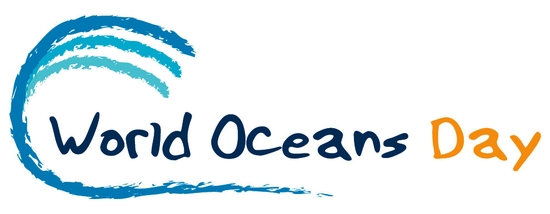Appreciating World Ocean Day
There aren’t many people who know that more than 90% of the world’s biomass is contained in the deep blue seas that cover almost three quarter’s of the earth’s surface, nor that in the last few years, our oceans have endured massive amounts of damage due to pollution and devastation of one type or another.
World Ocean Day, created in 1992 in Rio de Janeiro, has yet to be declared a national holiday, but since its birth at the Earth Summit that year, the day provides an opportunity for all Americans and inhabitants of the globe, to celebrate the diversity that is to be found in the oceans that cradle every land mass on the planet. The ocean gives life, and without it, life would cease to exist. The ocean gives oxygen and regulates climate, as well as offering food and medicine.
Unfortunately, mankind has not been kind to her in return, and has polluted her with our garbage, killing so many different kinds of fish and mammals that make the ocean their home that they are either extinct or on the verge of extension, and we continue to destroy native habitats that affect not just one species, but multiple species in the natural food chain that have existed for millions of years. Worst of all, we have taken the ocean for granted.
The United Nations’ Earth Summit has tried to change all that, and encourage not only the United States, but also every nation in the world to start appreciating the world’s oceans as they deserve. The Ocean Project, a brainchild of the Earth Summit, encourages teachers and civic leaders around America, and the world to instruct children to become caretakers of our oceans. Together with schools everywhere, the World Ocean Network is hoping to pass resolutions to designate June 8th as World Ocean Day, a day when everyone does something to help insure that we appreciate our ocean and try to reverse some of the long term damage we have caused in a mere few hundred years.
The World Ocean Network strives to convince everyone that without our help, future generations won’t have much of an ocean to enjoy. Supporting laws and regulations that ensure that pollution is prohibited and that people respect the water is a driving force of their mission. For many decades, world inhabitants have used the ocean as a huge garbage dump, but laws have slowly reversed that tragic trend. Still, children and young adults are now being taught that it’s not just the ocean itself that we must protect, but also the lakes, rivers and streams that drain into the oceans from the Mississippi river in the Midwest to the Columbia river in the northwest and the Hudson River in the east. Studies have shown that those of us who live inland cause more than 80% of waste that ends up in the ocean.
Teachers and community leaders have encouraged children in schools and families within their communities to choose resources that are environmentally friendly to our waterways and oceans. They are taught how to properly dispose of dangerous substances that pollute, like motor oil, paper trash and industrial waste. Teaching everyone to appreciate the wealth of food the ocean provides us is another way to ensure that we do our best to protect those resources, as part of our future. Recycling is one of the best ways to help save oceans, not only those embracing both coasts of America, but around the world.
Children are the future, and the task of saving the world’s most valuable resource will fall to them. Finding renewable sources of energy other than coal and gasoline are going to be in the hands of our children and grandchildren. Encouraging legislation to designate June 8th as World Ocean Day is one of the best things that we can do to help them succeed in that task.

